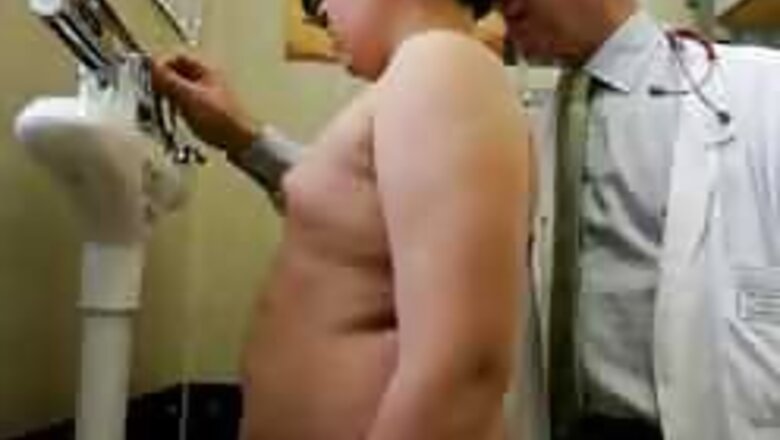
views
San Francisco: Obese teenagers who had surgery to shrink the size of their stomachs on average lost nearly half their weight in the four years after the procedure, according to a study presented on Thursday at a medical conference.
Researchers from the Hospital Sao Camilo in Brazil also said that the laparoscopic gastric bypass surgery eliminated high blood pressure and type 2 diabetes for the teenage patients who had those conditions.
"Morbid obesity is a progressive disease so the earlier the intervention whether by surgery or other means, the better the chances are to avoid future health problems and to prolong life," said the study's lead author, Dr Ricardo Cohen
The study involved 42 teenagers aged 13 to 18 whose average weight fell from 260 pounds (118 kg) before surgery to 135 pounds (61 kg) four years later.
Sixteen of the youth with hypertension and three with type 2 diabetes, were free of those diseases 50 days after surgery.
The study comes amid growing concern about rising levels of obesity among teenagers and an increasingly heavy adult population, predominantly in the United States.
"It is the fastest growing disease in the pediatric and adolescent age group," president of the American Society for Bariatric Surgery, Dr Neil Hutcher said.
"It is estimated that at least 15 percent of children are obese and another 10 percent to 15 percent are overweight,” he added.
Additionally, in the United States, one in 50 adults are diagnosed with morbid obesity, a condition imposing an estimated $117 billion annually in costs on the country's health care system.
Morbid obesity is a disease marked by high level of body fat and when a person is at least 100 pounds (45 kg) overweight.
The study on how teenagers fared after the stomach surgery was presented at an American Society for Bariatric Surgery conference in San Francisco.
Other studies at the conference reported gastric bypass surgery helps reduce the risk of heart disease by half for the morbidly obese.
They also reported that the risk of dying from morbid obesity is up to 85 per cent greater than the risk of dying as a result of the stomach-reduction surgery.



















Comments
0 comment